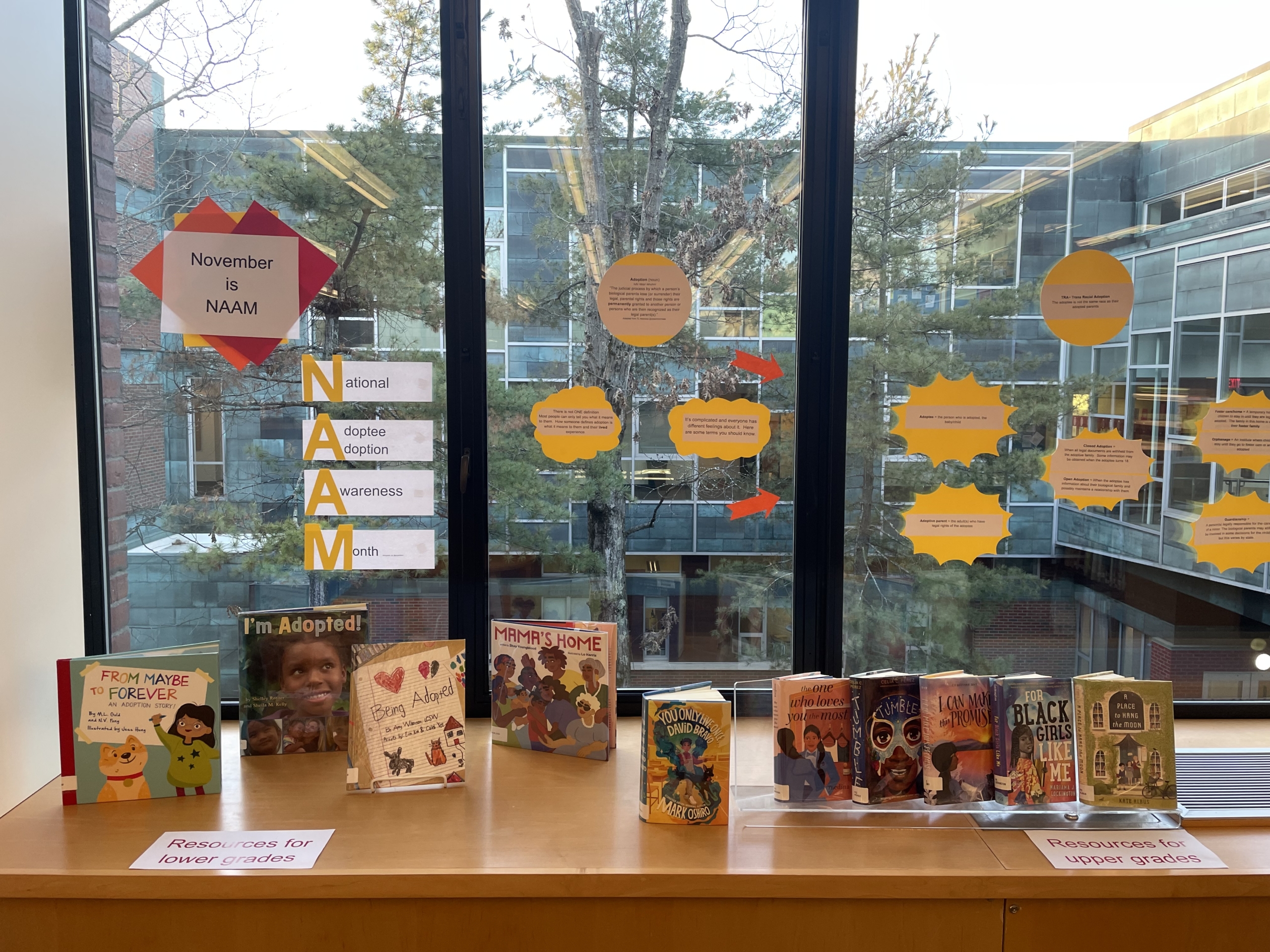by Carly Ellis, Lower Division Librarian, Elena Pereira, Upper Division Librarian, and Tina Fox, Lower Division Head
At Park, we seek to elevate, understand, and celebrate the differences that make each member of our community unique and special. “Difference” comes in many forms – some visible, others less so. Adoption is a topic that touches families worldwide, and yet it remains an often hidden, less talked about identifier, even as many in the United States have a personal connection of some form to adoption.
November is National Adoption Awareness Month (NAAM), established in 1995 by President Clinton to build awareness on issues of adoption nationwide. In recent years, the focus has shifted from celebration to trying to understand the nuances and complexities of adoption.
As more research is done about the adoption experience, we now know that it is important to center adoptee experiences, listen, and seek to understand from their viewpoint, if they choose to share.
Adoptees are not a monolith. Each person’s story is different. Adoption is a complex experience because while there is joy and celebration, there is also loss. For Transracial Adoptees (TRAs)– adoptees whose race is different from their adoptive parent(s)– there are added layers of complexity. TRAs are at greater risk of identity confusion, more likely than other adoptees to feel a sense of exclusion in their communities and to experience “imposter syndrome”–the deep-rooted sense that they are a fraud, unable to accept and embrace their own accomplishments.
Park’s core values rest on the belief that academic excellence, social-emotional learning, and diversity, equity, and inclusion are inextricably connected and mutually supportive, yet how might we support students who begin from this place of exclusion and doubt? This topic is very personal for the three of us, as we are all Transracial Adoptees. We are sharing our stories with the hope that the experience and perspective gained on their own journeys can help expand our understanding.
Separation from a child’s birth parent is a traumatic event
“A child begins feeling and learning in the womb. Stress factors experienced by the mother can make babies also stressed.”
–Jennifer Elise Teer @pieceielove
My journey began in an orphanage in Bogota, Colombia. I was born Maria Elena Quintero in Cali, Colombia, and was adopted at the age of one by white college professors who renamed me Christina Maria Ormrod. I was raised in Colorado in a family of three children. While my family was open about my adoption and the adoption of one of my siblings, it wasn’t until college that I began exploring my own identity about being a transracial adoptee. In 2018, I contributed to an article for NAIS (National Association of Independent Schools) around Transracial adoption in partnership with educators who also identify as Transracial Adoptees, colleagues whom I had the pleasure of getting to know through my work in independent schools and through annual attendance at the People of Color Conference (PoCC). Each year we would come together at PoCC, where we have three days in affinity to share our stories, affirm each other in our highs, and offer support and understanding in our lows. As an educator, I am passionate about ensuring that all students have experiences that affirm all aspects of their identity, including students and families who identify with the uniqueness that comes with the transracial adoptee experience.
– Tina Fox
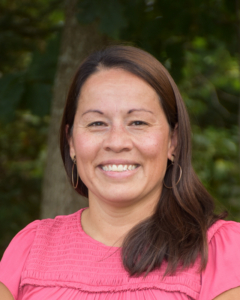
Medical research backs this up. “We find that in-utero exposure to elevated levels of the stress hormone cortisol negatively affects offspring cognition, health and educational attainment.”
–National Library of Medicine
I was born Maria Andrea Valiente and adopted from Guatemala City, Guatemala at age one by two white parents, who gave me a new name. My adoptive brother was adopted shortly afterwards from Venezuela, leaving us only four months apart in age. We were raised on a farm in a small Vermont town with loving parents who gave us everything they possibly could, from a loving home to education and extracurricular activities. There was very little education and support for adoptive parents of transracial adoptees at the time, and families commonly adopted a “colorblind” approach, not “seeing” race. This created behavior and academic challenges for me both at school and at home. As a teenager, I had no sense of my racial identity and how it shaped my experiences growing up. When I came to Boston for college, however, I connected with an adoptee community and adoption-competent therapists. I began understanding my different identities and passionately learning about the adoption experience through first person narrative and research. The research is developing and still lacking.
In the past year, I embarked on a search for my biological family – and found them. For those who choose to search, each reunion is unique, different, and unpredictable. In finding my family, I learned that my story is integrally connected to some of the darkest parts of Guatemalan history. While this is a shock to the system, there are many others out there like me whose adoption was the unjust consequence of a war in Latin America.
While I continue to process my new reality, I am deeply passionate about my work as a teacher-librarian and supporting students in understanding facets of their unique identities through books. In my personal time, I work with a non-profit organization dedicated to supporting Guatemalan adoptees and their families in our unique, shared experience.
– Elena Pereira
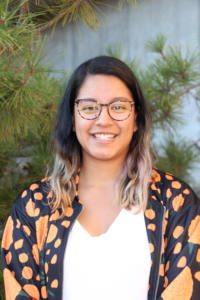
“While genetics plays a significant role, scientific research has made clear that the quality of a child’s experience in the first few years of life- positive or negative helps shape how the brain develops. Connections needed for many important, higher-level abilities like motivation, self-regulation, problem solving and communication are formed (or not formed) in early years, 0-3. It is much harder for these essential brain connections to be formed later in life.”
–firstthingsfirst.org (early childhood agency)
I was born in Medellín, Colombia without a name, and was adopted by a family living in Rockport, MA when I was 14 months old. I have been told I cried a lot my first year in the United States. I didn’t begin speaking until I was two years old, and did so with difficulty. While I struggled academically throughout my school years, neuropsych testing at the age of ten resulted in no official diagnosis. My learning challenges were attributed to anxiety, fear of risk-taking, fear of failure, and low self-esteem. I firmly believe that this is a result of adoption, my delay of brain development from being separated from my biological mother, and my upbringing. It was only after college that, on my own, I discovered various organizational tools – using pictures, colors, and timers, minimizing distractions – that helped me complete my graduate work in education at the top of my class.
I have come to understand that growing up in an all white family community for over 30 years, has negatively impacted my sense of identity and self-worth. Even today, I am often mistaken for not being a part of my family. Once I was mistaken for an employee in my parents house. I have experienced racism and microaggressions throughout my life, even from friends and family members. There were zero cultural connections for me – Colombia in the 1990’s was equated with drug lords and the Medellín cartel. This was the only lens of my culture that was presented to me. Walking in urban settings like New York City or Boston, people would automatically talk to me in Spanish. I felt imposter syndrome – not only could I not communicate with them in Spanish, but I wasn’t who they thought I was. I still struggle with this.
When I was in my 30’s, I moved to Colombia for two years to teach 1st grade and to learn about my culture, and then, in 2013, joined the faculty at Park. It was with Park that I went to my first People of Color Conference (PoCC) in 2014. It wasn’t until I saw a sea of brown and black people at PoCC that I realized that I was a person of color too. I never felt like I belonged anywhere, not with my family, and not when I lived in Colombia as an adult. At PoCC, I heard the term “Transracial Adoptee” for the first time, and joined an affinity space where I met other people just like me, including Tina Fox. PoCC allowed me to find that space for myself so that I can be a better educator, and now a mother. As I continue on my journey to understand my identity, I am also driven to help educate others. Adoption begins with loss, and that never goes away. Even the most aware, educated, well-intentioned parent/guardian can’t take that away. As my own experience reveals, the journey sheds important insight into how many adoptees learn and value themselves in school.
– Carly Ellis
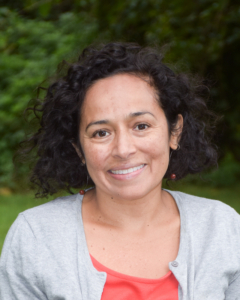
“We teach who we are.”
In speaking openly about our own journeys, we hope to help create space for the openness and understanding that benefits us all. All three of us feel grateful and privileged to work in the Park community alongside other TRAs, and to work in an environment where we can express ourselves freely. We teach who we are.
The 2022 PoCC conference takes place on November 30-December 3, in San Antonio, TX, with the theme Reunited in Purpose: Elevating Our Worth, Our Agency, and Our Excellence. Nine members of Park’s faculty and staff, including Tina, Carly, and Elena, are attending.
…
Resources:
- Boston Post Adoption Resources (BPAR) in Brookline is a local organization with useful resources.
- Park’s librarians have put together a number of books for those touched by adoption:
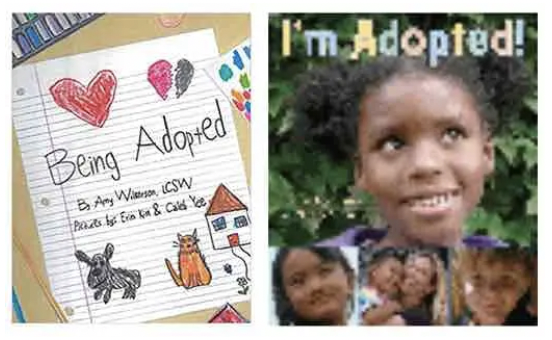
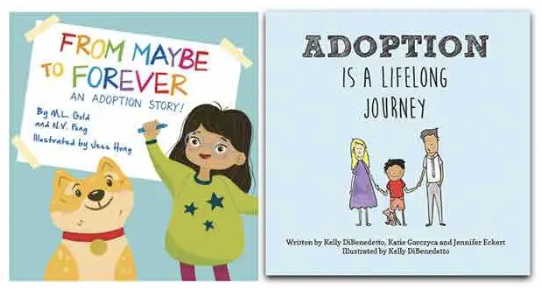
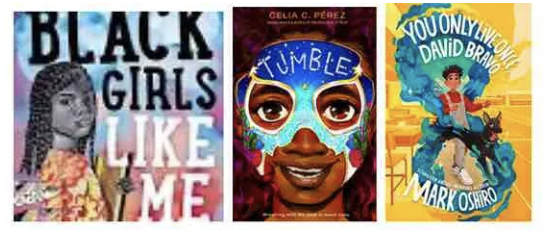
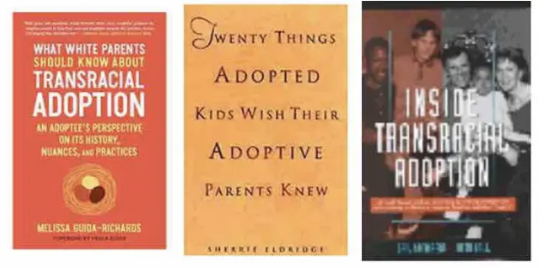
Sources:

